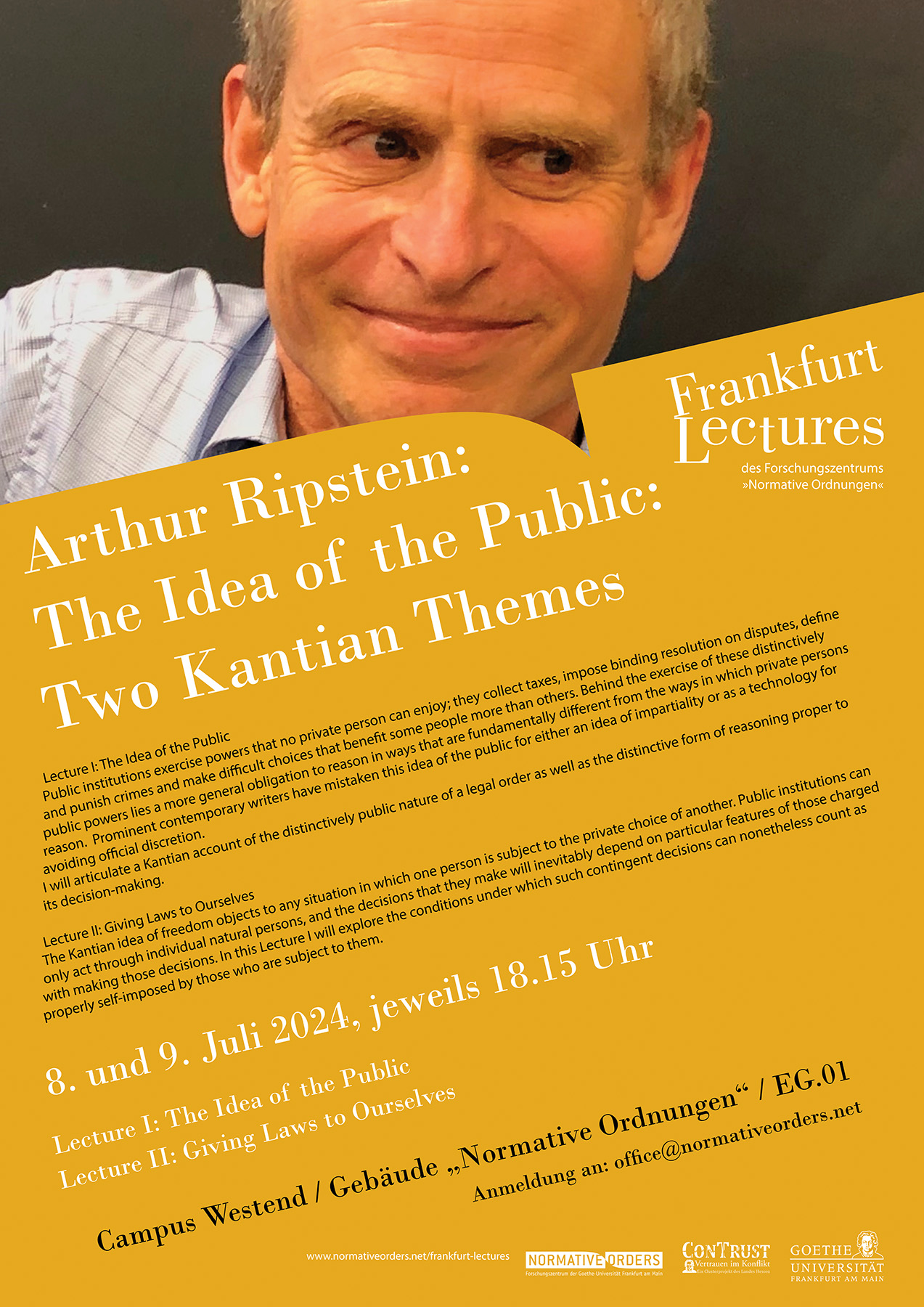The foundations of public power – Frankfurt Lectures with the renowned Kant expert Arthur Ripstein on July 8 and 9
What right does a state have to claim sovereignty? How must the actions of its representatives be limited so that they do not express arbitrary power but democratic self-legislation? And what should a concept of the public sphere look like that provides answers that are up to date? The Canadian philosopher Arthur Ripstein will address these questions in the upcoming Frankfurt Lectures “The Idea of the Public: Two Kantian Themes” on Monday and Tuesday, July 8 and 9, 2024, both at 18:15 in room EG.01 of the “Normative Orders” building.
Ripstein develops his answers based on the philosophy of Immanuel Kant, the 300th anniversary of whose birth this year, but who still has solutions to the challenges of the present. The first lecture “The Idea of the Public” on July 8 is dedicated to the fundamental question of the justification for state sovereign rights, such as levying taxes or punishing crimes. Ripstein distinguishes his Kantian approach of a genuinely public use of reason from common scientific positions and thereby provides a new foundation for the democratic constitutional state. The second lecture on July 9, entitled “Giving Laws to Ourselves”, addresses the problem that every exercise of public power ultimately depends on decision-makers who allow individual factors to influence their actions. The difficult question therefore arises as to how their possible arbitrariness should be limited in such a way that the decisions can also be understood as an expression of self-legislation by those affected by them.


